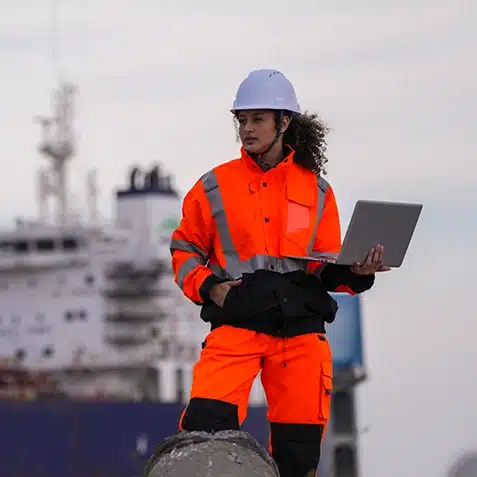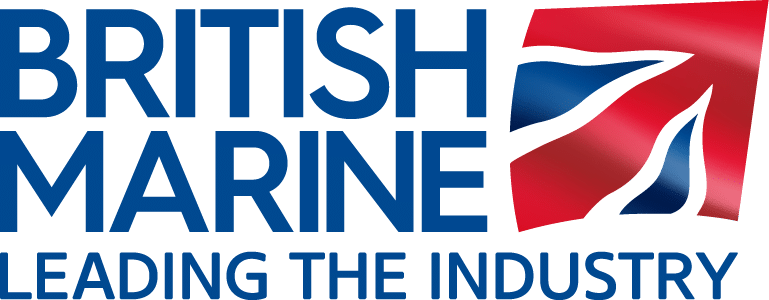Marine Consultancy Course
Diploma in Marine Consultancy
Become a Marine Consultant
This Marine Consultancy Diploma from the MTA delivers specialist training for resolving complex maritime incidents, producing technical opinions and influencing legal and operational outcomes.
This professional programme combines technical expertise with business insight, covering marine accident investigation, expert witness duties, regulatory compliance, report writing, and running a successful consultancy.
Designed for master mariners, marine engineers, naval architects, marine surveyors and other maritime professionals, the course builds the skills to investigate incidents, produce authoritative reports, and advise on safety, compliance and risk. Successful graduates will be equipped to work with shipping companies, insurers, classification societies and legal teams across a wide range of marine industry cases.

Professional Consultancy Qualification
Contact us below to enrol today, or speak with our experienced course advisors.

Duration:
12 - 18 months
Learn at your own pace
Online Course:
Study from anywhere

Cost:
Diploma: £3,195
Certificate: £2,295

Recognised by: 
Marine Consultancy Diploma vs Certification
Choose the right path for your career:
Comprehensive Training: In marine accident investigation, technical reporting, expert witness procedures, regulatory compliance and consultancy business operations.
Flexible Study Duration: 12 – 18 month depending when you enrol to the program, study online at your own pace, from anywhere in the world.
Marine Industry Career Opportunities: 100% Online, with access to our student learning portal
Long-Term Career Impact: Marine Consultant, Accident Investigator, Expert Witness, Maritime Compliance Advisor, Risk Assessor or Technical Consultant for Shipping Disputes.
Global Recognition: Our Diplomas are recognised by the University of Portsmouth and are supported by industry associations.
Assignments: One assignment is required to be completed and submitted at the end of each module, based on that particular subject.
Certification: you will receive a PDF Digital certificate (Printed Certificate Completion Pack available).
Final Examination: There will be a final examination upon completing and submitting all student assignments (exams are sat in April or October).
Post-Nominal letters: On passing the Diploma you can also use these letters after your name: MTA Dip MC
Digital Course Badge: Upon successful completion students will receive an exclusive course badge for use on business cards, LinkedIn profiles and website(s)!
Diploma - £3,195
A globally recognised qualification for careers in marine consultancy, incident investigation, expert witness services and vessel compliance advisory roles.
✔
✔
✔
✔
✔
✔
✔
✔
✔
✔
Certificate - £2,295
Specialist marine consultancy training without formal assessments, for those who do not require a recognised diploma.
✔
✔
✔
✔
✔
✔
Marine Consultancy Curriculum: 10 Modules
The course consists of 10 modules covering essential aspects of marine consultancy, including legal frameworks, accident investigation, expert witness work, and financial management, offering practical knowledge, real-world applications and exposure to modern maritime trends, followed by a final case study assessment.
1. An introduction
- Overview of Marine Consultancy
- Roles and Responsibilities
- Industry Overview
- Ethical Considerations in Marine Consultancy
- Terms and Conditions of Service
- Caveats and Disclaimers
2. Types of Marine Consultancy
- Overview of Marine Consultancy Specialisations
- Technical Consultancy
- Legal and Regulatory Consultancy
- Insurance and Claims Consultancy
- Offshore Energy and Renewable Consultancy
- Environmental Consultancy
- Operational Consultancy
- Emerging Areas in Marine Consultancy
- Consultancy for Autonomous Vessels and Innovative Technologies
3. Career Structure, Progression and Qualifications
- Introduction to Career Paths in Marine Consultancy
- Qualifications and Certifications
- Skills Development for Marine Consultants
- Career Progression
- Networking and Professional Development
- Challenges and Opportunities in Career Advancement
- Case Studies and Real-World Experiences
4. Marine Accident Investigation
- Introduction to Marine Accident Investigation
- Legal and Regulatory Framework
- Types of Marine Accidents
- Accident Investigation Process
- Evidence Collection and Analysis
- Identifying Root Causes
- Report Writing and Recommendations
- Communication and Stakeholder Engagement
- Learning from Past Accidents
- Ethical and Professional Considerations
- Managing Conflicts of Interest
5. Expert Witness Work
- Introduction to the Role of an Expert Witness
- Legal Framework and Processes
- Preparation for Expert Witness Assignments
- Writing Expert Reports
- Testifying as an Expert Witness
- Ethical and Professional Considerations
- Challenges and Practical Insights
6. Working With Lawyers
- Introduction to the Role of Lawyers in Maritime Disputes
- Understanding Legal Processes and Terminology
- Providing Expert Insight for Legal Cases
- Communicating Effectively with Legal Teams
- Ethical and Confidentiality Considerations
- Challenges and Best Practices in Collaboration
7. Working with Other Specialists
- Introduction to Multidisciplinary Collaboration
- Types of Specialists and their Roles
- Effective Communication and Coordination
- Addressing Challenges in Multidisciplinary Teams
- Ethical and Professional Considerations
8. Report Writing for Marine Consultants
- Introduction to Report Writing
- Principles of Effective Report Writing
- Structuring a Marine Consultancy Report
- Technical Content and Data Presentation
- Writing for Non-Specialists
- Addressing Challenges in Report Writing
- Review and Quality Assurance
- Ethical Considerations
9. Business Practice and Development
- Introduction to Marine Consultancy Business Practices
- Key Aspects of Business Practice
- Marketing and Branding for Marine Consultants
- Business Development Strategies
- Legal and Ethical Considerations in Business Practice
- Challenges and Solutions in Running a Marine Consultancy Business
- Adaphng to Evolving Client Needs and Industry Trends
- Ethical Requirements in Marine Consultancy
- Possible Sanctions for Contravention of Ethical Standards
10. Financial Management and Accounting
- Introduction to Financial Management in Consultancy
- Budgeting and Financial Planning
- Revenue Streams and Pricing Strategies
- Accounting Fundamentals for Marine Consultants
- Taxation and Regulatory Compliance
- Financial Risk Management
- Effective Invoicing and Payment Management
- Investment and Growth Strategies
- Evaluating Return on Investment (ROI) for Different Business Decisions
Hear from our Students
Meet the Course Director
Mike Wall
Managing Director and Principal Consultant. Mike Wall and Associates Ltd
Mike joined Cunard Line as a marine engineer apprentice at the age of 17, eventually reaching the rank of Chief Engineer
with service aboard many types of vessel and engine.
During his career Mike has obtained his First Class marine engineer’s certificate of competency, Class 1 Hong Kong Local Master’s Certificate, a Bachelor of Science in Nautical Studies and Master of Science degree in Shipping and Maritime Studies. Experience has been gained in most areas of shipping with eight years as a lecturer in Maritime Studies, culminating in five years as Senior Lecturer at Warsash College of Maritime Studies, UK and time as a Superintendent with a UK coastal company. Since leaving full time education, Mike has continued to be a visiting lecturer at various establishments and regularly carries out training seminars for various shipping organisations.
Over twenty-five years of experience has also been gained in hull, machinery and cargo surveying in the US, New Zealand, Fiji and South East Asia,. Most of this was based in Hong Kong, providing a wide range of marine consultancy and surveying services to P&I Clubs, Shipowners, Shipmanagers, Underwriters, Admiralty Lawyers and other Principals. Mike is also a qualified Mediator, being registered both in the UK and Hong Kong. Mike is a regular contributor of shipping technical articles to various maritime publications and is currently editor of FLASHLIGHT, the free emailed monthly newsletter distributed to 4,000+ marine surveyors around the world.

Marine Consultancy Course FAQs
Find out more about the course with our FAQs below.
What does a marine consultant do?
A marine consultant provides expert technical advice on maritime incidents, vessel condition, regulatory compliance and operational safety. They investigate accidents, act as expert witnesses, prepare technical reports, and support legal teams, insurers and shipping companies in resolving disputes.
How do I become a marine consultant?
Most marine consultants begin with a background in the maritime industry, such as marine surveying, engineering, naval architecture or seafaring, then complete specialist training like this MTA Marine Consultant Diploma to develop technical, legal and commercial expertise.
How much do marine consultants earn?
Earnings vary depending on experience and specialisation. Entry-level consultants may earn around £40,000–£55,000 per year, while experienced consultants working on high-profile cases can exceed £80,000, with senior expert witnesses charging higher day rates.
What skills are needed to be a marine consultant?
Key skills include analytical thinking, knowledge of maritime regulations, technical vessel inspection skills, clear report writing, and the ability to provide impartial expert opinions in legal contexts.
Where can marine consultants work?
Marine consultants can work independently or for consultancy firms, insurers, classification societies, law firms, shipowners and port authorities, often on a project or case-by-case basis.
See our FAQ page for more questions answered about MTA courses.
Supported by:

Why Choose The Maritime Training Academy?

Flexible
Online learning allows you to study in your own time, at your own pace from anywhere in the world. This saves on travel and classroom costs and allows you to fit your studies around your job and progress your career.

Supportive
While the nature of distance learning is independent study, we recognise the importance of support. Students can contact us at any time during their course for assistance and our team of industry experts are always on hand for advice.

Expertise
We have over 50 industry experts writing, developing and advising on our course material. We truly believe that allowing students to tap into their expertise and knowledge is of the utmost importance to fulfil your dream career.
If you would prefer to complete this as a classroom-based course, please contact us.
